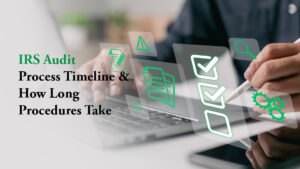Let’s face it, you cannot ignore an issue as grave as back taxes. Fact is, it is inevitable and a subject that has the potential to create chaos if neglected. If you overlook the tax bill, the IRS could push you to pay via several ways – including federal tax liens, levies, and wage garnishments – not to mention the piling penalties and interest.
On the brighter side, if you’re unable to pay the owed amount, the IRS offers a range of solutions. It can be anything from time extension to monthly payment schemes. And guess what, they also offer programs tailored for those in financially challenging situations.
But, what if you owe taxes that have been accruing over time from last year? Considering yes, you’ll be hit by unpaid Back Taxes (a subject, if left unaddressed, can give rise to a financial avalanche). Because the subject is pretty sensitive, it’s important to address and understand it till the end line.
So, what are back taxes? They’re taxes you owe the IRS from previous years. They’re your dues which, for one reason, have gone unpaid. Sounds scary, right? Well, it doesn’t have to be.
Questions like “how to resolve back taxes?” have gained quite a view. To get a clear understanding of what back taxes are and how to avoid them in the first place, read ahead! Also, we have some IRS tax tips for you, read till the end!

What Are Back Taxes?
The first thing you must understand is why you might owe back taxes, to begin with. Often, it’s just a simple oversight or a mistake in tax calculations. While, other times, it’s due to late or missing tax returns. Either way, it’s an important subject that you shouldn’t miss out on. Meaning that it is crucial to identify the root cause so you can address it head-on.
Once you’ve identified the “why”, it’s time to move on to the “how”. This means you should start recognizing how to address the issue of back taxes. Often, the simplest solution is to pay your back taxes as soon as possible. The longer you wait, the greater your debt will be because of accruing penalties and interest.
But, what are back taxes?
Back taxes are those taxes that were actually owed in the previous year and have remained unpaid since. It can happen due to several reasons, such as forgetting to file a return, not having enough money to pay the taxes, or making a mistake on your return.
Understanding Tax Penalties!
Back taxes pile up interest and penalties over time, making it important to pay them as soon as possible. Tax penalty is a financial charge the IRS imposes for failing to comply with tax laws. The government imposes it for several reasons:
- Failing to file a tax return
- Underpaying taxes
- Making an error on your return
Understanding tax penalties and interest can be quite scary due to their subtle calculations and multiple types. Some of the most common types of tax penalties include:
- Failure to file: One commonly asked question as soon as the tax season comes by is, “What is the penalty for filing taxes late?” This refers to the additional fees and interest that pile up when taxes are filed after the deadline. If you fail to file a tax return by the given timespan, you may be subject to a penalty. The penalty amount is based on how late you file your return. The charge is usually 5% of the unpaid taxes for each month or part of a month that the return is late.
- Penalty for Late Payment: The failure-to-pay penalty is when you do not settle your tax bill by the deadline. Though typically a little less acute than the failure-to-file penalty, it still piles up. Generally, the failure-to-pay estimated tax penalty is 0.5% per month of your unpaid taxes. The IRS penalty for failure to pay estimated taxes serves as a harsh reminder for taxpayers to stay on top of their quarterly tax payments to avoid unforeseen debt.
Accuracy-Related Penalties: Accuracy is the most vital attribute when it comes to taxes. The IRS imposes penalties if they discover major inaccuracies in your tax return. It can be 20% of the underpayment linked to inaccuracy.

Accrued Interest on Back Taxes
Are you dealing with back taxes? If yes, there’s an additional factor you need to keep on your radar: Accrued Interest. This is one of the most overlooked components that can quietly increase your tax debt over time. Accrued interest can turn any small amount into a daunting sum. The IRS penalty for estimated tax can be a hefty consequence for taxpayers who don’t make on-time payments on their income throughout the year.
Accrued interest on back taxes is simply the interest that accumulates on your unpaid taxes from the day after your payment was due until the day you pay it off. Accrued Interest continues to grow your debt, even if you’re unaware of it.
Accrued Interest is the interest that is usually charged on unpaid taxes. Typically, it is evaluated on a daily basis, and it depends on the unpaid sum of taxes, plus the interest which has already accrued. The interest rate on back taxes is generally determined on the basis of the federal short-term rate plus 3%. Many taxpayers dread the “penalty for filing taxes late”, as it can significantly increase the overall amount owed.
Key points to note:
- The interest rate on back taxes for 2023 is 3.25%
- The federal short-term rate is a variable rate that the Federal Reserve has set.
- As of March 8, 2023, the federal short-term rate is 0.25%.
- It simply means that the interest rate on back taxes is currently 3.25%.
For example, if you owe $10,000 in back taxes, you’re going to be charged $325 in interest every year. In case you don’t pay your back taxes within a year, you’re going to owe $10,325. The interest is going to pile up unless you pay your back taxes in full.
LatePayment Penalties & Failure to File Tax Penalties
Many taxpayers fear a penalty for filing taxes late, as it can significantly increase the overall amount owed. So, here are some types of penalties you must beware of:
Late Filing Penalty
The IRS usually charges taxpayers a late filing penalty of 5% of the unpaid taxes for each month or part of a month that the return is late. Typically, the maximum late filing penalty is 25% of the unpaid taxes.
For instance, let’s say you owe $1,000 in taxes and you file your return 60 days late. For this reason alone, you will be charged a late filing penalty of $100. Now, let’s say you file your return 90 days late, then you’re going to be charged a late filing penalty of $150.
Late Payment Penalty
The IRS charges a late payment penalty of 0.5% of the unpaid taxes for every month or part of a month that the taxes are late. The maximum late payment penalty is 25% of the unpaid taxes.
For instance, let’s say you owe $1,000 in taxes and you pay it 30 days late. Considering that, you will be charged $15 as a late payment penalty. Considering that you pay 60 days late, you will be charged a late payment penalty of $30.
Failure to File Penalty
The IRS can also impose a failure to file a penalty if you fail to file tax returns altogether. The failure to file a penalty is 5% of the unpaid taxes for every month or part of a month that the return is late. The maximum failure to file a penalty is 50% of the unpaid taxes.
For instance, assuming that you owe $1,000 in taxes but you fail to file your return, you’re going to be charged a failure to file a penalty of $500.
The maximum penalty for failing to file and pay taxes is 47.5%. This also consists of a 22.5% late filing penalty and a full 25% late payment penalty. Considering that your return is more than 60 days late, you’re going to be charged a minimum of $450 as a failure-to-file penalty.
The minimum failure-to-file penalty is 100% of the tax that needs to be displayed on the return. Clearly, if you owe $100 in taxes and you file your return 60 days late, you are going to be charged a minimum penalty of $100.
Collection Actions by the IRS
Do you have debt? Assuming yes, you’re in big trouble. The IRS imposes many collection activities to get taxpayers to pay the amount they owe. Quite literally, if taxes are not timely paid, they implement certain activities that compel you to pay your debt.
What are the collection actions? Well, there are plenty.
- Sending you a letter for payment: The IRS is going to roll out a letter first, asking you to pay your taxes. This letter usually describes how much you owe and the deadline by which you must pay.
- Levying your wages: If you don’t pay your taxes even after receiving the letter, the IRS may choose to levy your wages. This simply means that the IRS is going to take a portion of your paycheck every month until your debt is fully paid.
- Levying your bank account: The IRS has the authority to also levy your bank account. This means that the IRS can directly pull money from your bank account to pay your debt.
- Levying your property: The IRS may also levy your property, such as your car or your home. This means that the IRS will sell your property to pay for your debt.
- Garnishing your Social Security benefits: If you receive Social Security benefits, the IRS has the authority to garnish your benefits to pay your debt. Simply put, the IRS will pull a portion of your Social Security Benefits every single month until your debt is paid in full.
- Filing a Notice of Federal Tax Lien: The IRS may file a Notice of Federal Tax Lien against your property. This will enable the IRS to have a legal right to seize your property to pay your debt. A tax lien can make it difficult to borrow money, buy a house, or sell your property.
Are you facing collection actions from the IRS? It’s really important to contact the IRS as soon as possible. Many don’t realize that even with an extension, “tax extension interest and penalties” can still apply to unpaid tax bills.
The IRS can work collaboratively with you to create a payment plan or offer other forms of relief. You should also speak with a tax professional to discuss your options. This is the time to promptly respond to any IRS tax agent that drops you a notification. Need tax audit representation? Get immediate help from former IRS tax agents!
Resolving Back Taxes: Payment Options and IRS Relief Programs
If you owe back taxes, there are a few things that can really work for you to resolve this issue. This means that the IRS offers multiple payment options and IRS relief programs that are designed to help individuals like you.
Payment Options and Relief Programs
- Installment Agreement: This allows you to pay your back taxes over time, in parts, for a time period divided into months. This means that you can choose to pay your taxes in monthly or quarterly installments.
- Offer in Compromise: This is a program that enables you to settle your back taxes for an amount which is less than the original one. Here, the IRS considers a lot of many things before deciding to grant this payment plan. It can include anything between your ability to pay, your income, and your expenses.
- Currently not Collectible: CNC is a status that the IRS might grant if you are unable to pay your back taxes in full. The status is going to stop the IRS from pursuing any collection action against you, such as IRS wage garnishment or property levy.
- Penalty Abatement: It is a process of requesting that the IRS waives or minimizes a penalty which you’ve been assessed with. Penalty abatement applies if you can offer evidence such as Reasonable Cause, First-time Penalty, or other administrative waivers (including, a victim of identity theft, low-income taxpayer, or volunteer for a tax-exempt organization).
These are some of the many IRS tax relief programs that you should be aware of.
Seeking Professional Assistance for Back Taxes
Taxes are confusing and there’s no denying that. Seeking professional help at times of distress is always crucial.
What’s scarier is Back Taxes. These can feel like a high-stakes game. But, with the right move, acing it becomes quite easy. However, the question is: How to navigate through Back Taxes? This is where professional help comes as a rescue.
Tax professionals, with their deep understanding of the tax system, can help you assess your situation accurately. They analyze your tax history, identify errors or missed opportunities, and also figure out the amount you truly owe.
Beyond just figuring out what you owe, they can help in formulating a game plan to address your back taxes. They can help devise a manageable payment plan or negotiate an offer in compromise. Tax consultancy services can get you an action plan!
What’s more?
- Strategic Planning
- Accurate Assessment
- IRS Tax Representation
- Prevention of Penalties and Interest
Tax and consulting services provide IRS tax representation, acting as a liaison between you and the IRS. For the most part, they’re responsible for holding communication, negotiations, and paperwork.
The journey to resolve back taxes is usually very daunting to face alone. With tax consulting services by your side, you have a roadmap to steer you in the right direction.

Tips and Strategies for Preventing Future Accumulation of Back Taxes
Here are some key IRS tax tips and strategies to keep in mind:
- File your taxes right on time
- Try to pay your taxes in full at any cost
- Keep a good record
- Automate your tax payments
- Sign up for the direct deposit of your tax refund
- Beware of all tax deadlines so that you don’t miss it
- Set up a budget
- Get a copy of your tax return every year
- Track income and expense ratio each year
- Avoid mistakes on your return
- Be prepared for any and every unexpected expense
A tax professional can help you file your taxes correctly and on time. They can also help you negotiate with the IRS if you have back taxes.



